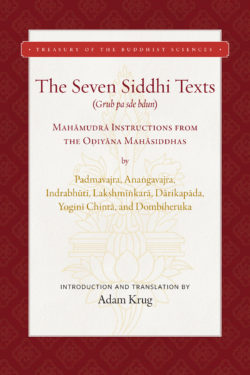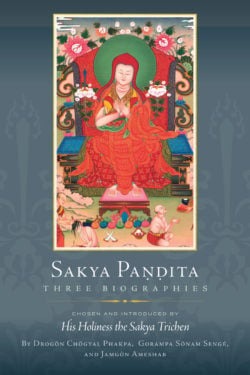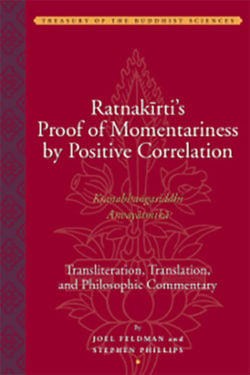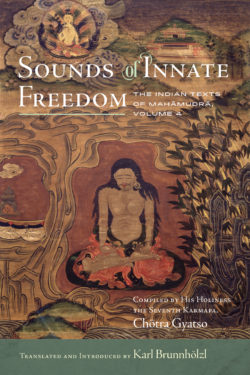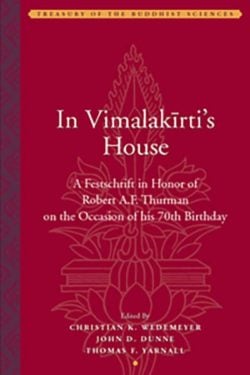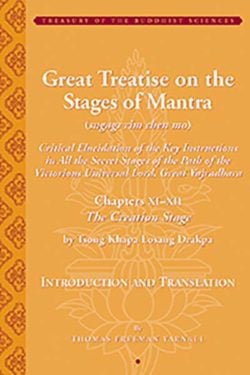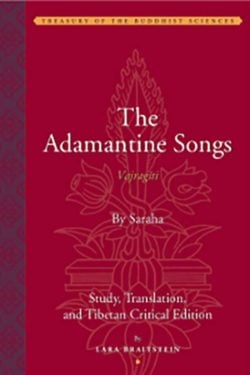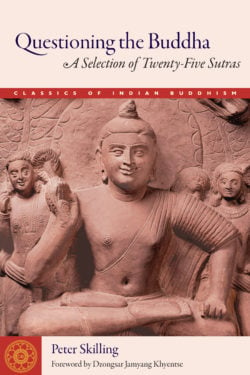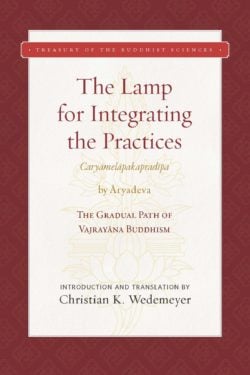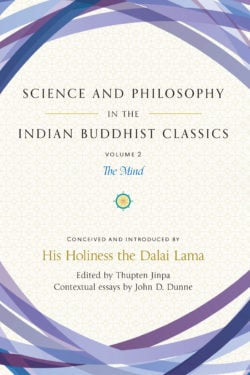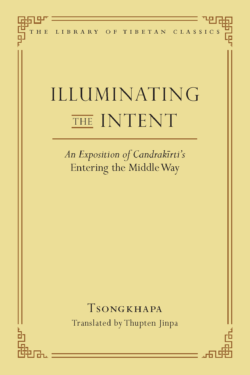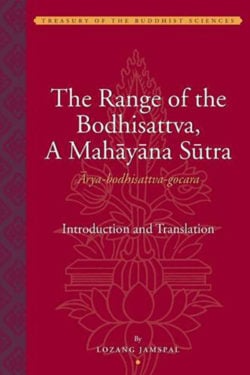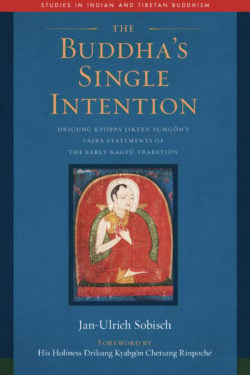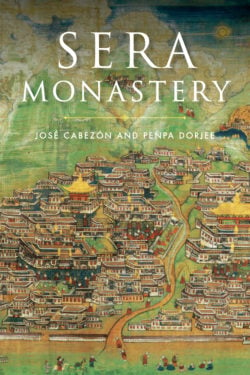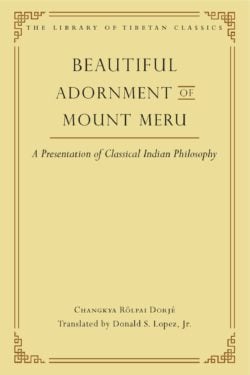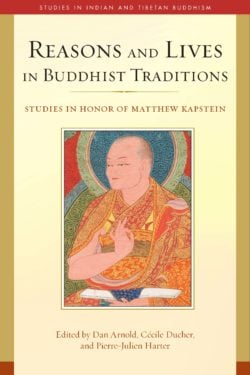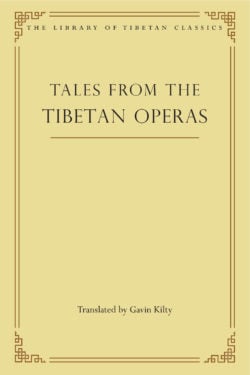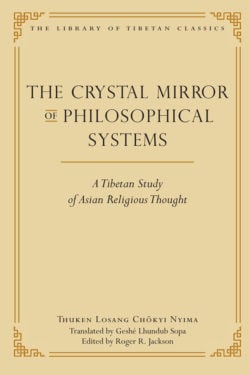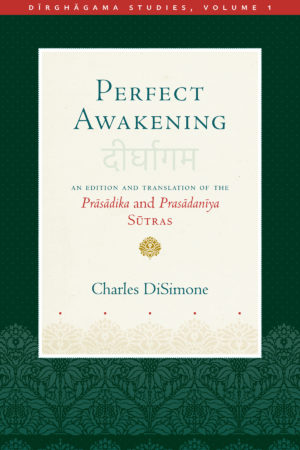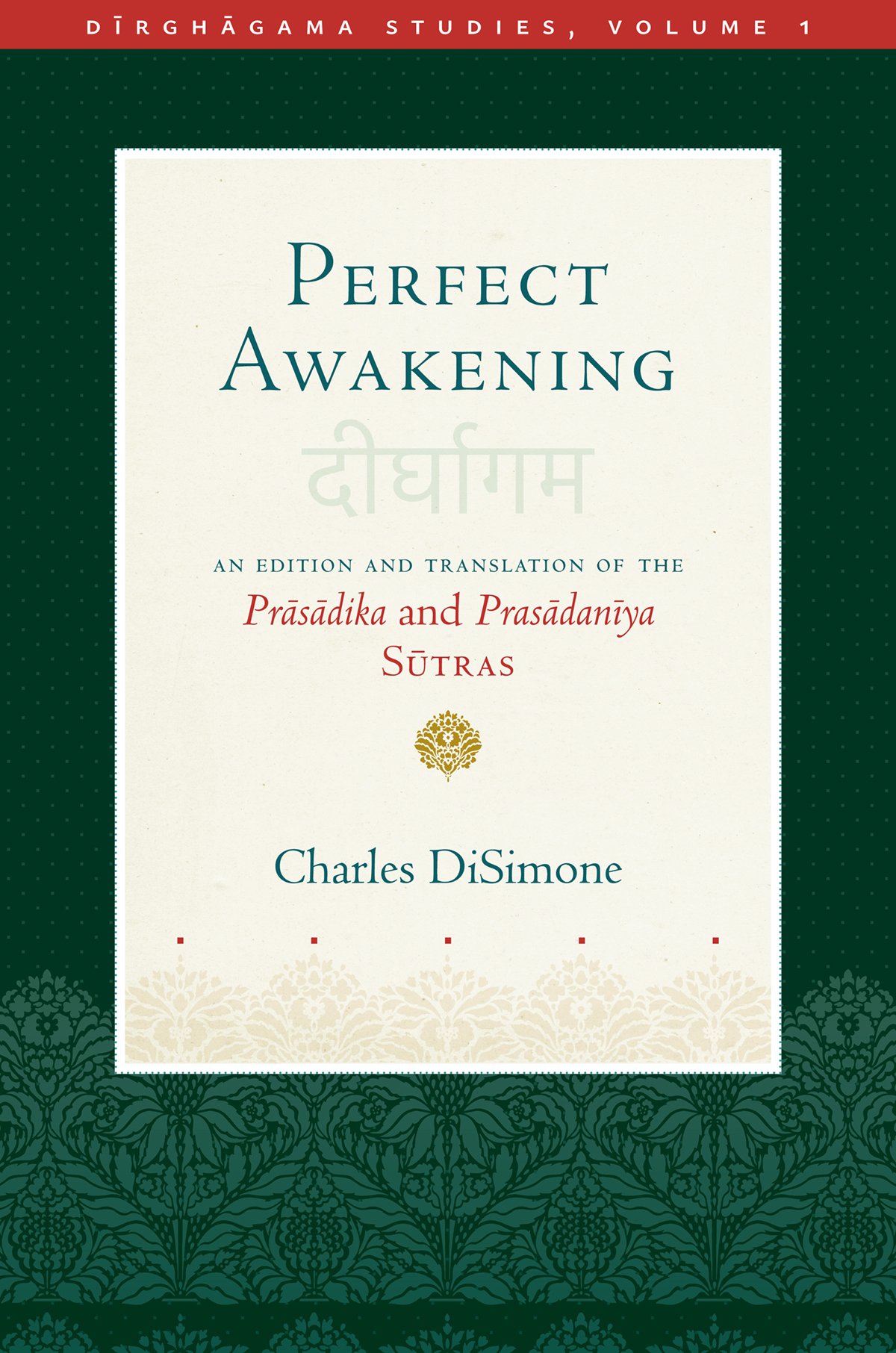
PERFECT AWAKENING
The Long Discourses, or Dīrghāgama, is a collection of the Buddha’s most well-known sermons that has circulated widely in the Buddhist world. Parallel collections in Pali and Chinese have long been known to scholars and practitioners, but it was not until the 1990s that a Mūlasarvāstivāda manuscript transmitted in Sanskrit was discovered, a major find with the potential to reshape our understanding of Buddhism in India and Central Asia. The present volume is the first in a three-volume series to present this rare manuscript, with a study, translation, and critical edition of two of the sūtras in the collection.
Around thirty years ago, a rare bookseller in London parceled out birchbark leaves of a manuscript bundle representing an ancient scripture that had likely been unearthed in the Gilgit region of Pakistan. Even as the fragile folios entered collections in Japan, Norway, and the United States, they were identified by a scholar as belonging to the previously lost Sanskrit Dīrghāgama, the Collection of Long Discourses of the Buddha, of the Mūlasarvāstivādins. Although the forty-seven separate sūtras in this āgama have parallel transmissions extant in the Pali Digha-nikāya and the Chinese Chang ahan jing, this Sanskrit witness, copied in the eighth century, was previously known only from partial quotations and from translations in Tibetan and Chinese. The discovery was thus one of major significance in the study of Buddhist literature.
This book, one of the first presentations of this manuscript in English, provides a translation, critical reconstruction, and study of two of the sūtras in the Dīrghāgama: the Prāsādika-sūtra and the Prasādanīya-sūtra. Both sūtras offer what appears to have been late teachings of the Buddha on the nature of faith and the preeminence of the Buddha over all other teachers. The Buddhist community was evidently concerned about the coming passing of the Buddha and, in these scriptures, laid the foundation for the tradition to continue with the Buddha at the center. The Prasādanīya-sūtra, in particular, is the locus classicus for the doctrine that only one Buddha and his teachings can exist in a world system at a time, ensuring that the Buddhist community would not be tempted to follow any other teacher who had not realized perfect awakening but would hold true to the Dharma of the Buddha.
These sūtras from the Mūlasarvāstivāda tradition are made available to the public for the first time in over a thousand years with philological reconstructions and translations. They are accompanied by synoptic parallels from the corresponding Pali Long Discourses of the Theravāda tradition and the Chinese Long Discourses of the Dharmaguptaka tradition along with citations and related passages from elsewhere in Buddhist literature. In addition, the work contains a full transliteration of the birchbark folios, an introduction to the two sūtras with a study providing paleographic and textual analysis of the manuscript, and notes providing insight and explanation throughout.
- Hardcover
- 504 pages, 6 x 9 inches
- $69.95
- ISBN 9781614296539
- eBook
- 504 pages
- $46.99
- ISBN 9781614296546
“Perfect Awakening presents editions and translations of the Prāsādika and Prasādanīya sūtras from the ‘Long Discourse’ or Dīrghāgama collection of the Mūlasarvāstivādin school. This pioneering volume by Charles DiSimone makes the two texts available for the first time in modern history. The two sūtras are striking examples of early Buddhist teachings. The first explores the meaning of ‘Teacher’ and ‘Enlightenment’ in the contemporaneous religious landscape, while the second explains why Gautama the Buddha stands out as a teacher and why rival teachers fall short of the mark. DiSimone carefully reconstructs the textual jigsaw puzzle and translates the sūtras thoughtfully, comparing them with their Pali and Chinese counterparts. As a result, Perfect Awakening enables us to read these two seminal texts the way sūtras are meant to be read: slowly and surely, deeply and insightfully..”—Peter Skilling, author of Buddha’s Words for Tough Times
“Charles DiSimone’s Perfect Awakening: An Edition and Translation of the Prāsādika and Prasādanīya Sūtras presents for the first time a complete edition, translation, and detailed study of two sūtras from a unique Sanskrit manuscript of the ‘Long Sūtras’ (Dīrghāgama) collection. Although the manuscript was discovered some three decades ago and has been intensively studied by many scholars, it is only now that a portion of the text is authoritatively presented in full detail. DiSimone’s book includes a scrupulously edited text, a faithful but readable translation, and complete parallels in Pali and Chinese. Perfect Awakening is the first volume of Wisdom Publications’s Dīrghāgama Studies series, which will comprise editions of further sūtras from the Dīrghāgama manuscript..”—Richard Salomon, University of Washington
Discover More
The Seven Siddhi Texts
Available early! Use code SST20 to receive 20% until December 23.
The first English-language translation (with rich historical introduction and extensive annotation) of a key group of Indian Buddhist tantric texts that have had profound influence on the Tibetan Buddhist tradition.
The Seven Siddhi Texts is a key collection of Indian Buddhist tantric exegetical treatises that have shaped the interpretation of unexcelled yoga tantra and Mahāmudrā (Great Seal) practice in Tibet from the eighth century ce to the present. The scholar-yogi authors of these seven texts—drawing upon their scriptural knowledge and personal insight—clarify the intended meanings underlying cryptic, seemingly antinomian passages in root tantras such as the Esoteric Community Tantra (Guhyasamāja-tantra) pertaining to sex, violence, and magical powers, which have proved controversial for many traditional and modern scholars. These seven treatises come from the famed mahāsiddha (great adept) tradition, which often defied the rigid social, religious, and gender norms of premodern India in quest of nondual wisdom. The translator’s introduction places the collection in its Indian sociohistorical context, traces its reception in Tibetan Mahāmudrā practice lineages, and addresses modern misinterpretations. As a window into the earliest Indian Buddhist tantric communities, the Seven Siddhi Texts is a treasure for both practitioners and scholars of these increasingly popular subjects.
This volume is part of the Treasury of the Buddhist Sciences series, copublished by the American Institute of Buddhist Studies (AIBS) and Wisdom Publications in association with the Columbia University Center for Buddhist Studies and Tibet House US. You can learn more about the series here.
Sakya Paṇḍita
A set of classic biographies of Sakya Paṇḍita—one of Tibet’s greatest scholars and religious masters.
Sakya Paṇḍita Kunga Gyaltsen (1182–1251) was a renowned Tibetan polymath, scholar, statesman, and religious master, and one of the most famous and consequential figures in the history of Tibet. The three classic biographies included here contain fascinating firsthand accounts of key events in Sakya Paṇḍita’s life, covering his family ancestry, early education, interactions and debates with other sects, travels to Mongolia and his diplomacy at the Mongol court, and a detailed account of the miraculous events that occurred in the last weeks of his life.
Ratnakīrti’s Proof of Momentariness by Positive Correlation (Kṣaṇabhaṇgasiddhi Anvayātmikā)
The Kṣaṇabhaṇgasiddhi is a masterpiece of skillful reasoning by the eleventh-century Indian Buddhist philosopher Ratnakīrti. This renowned scholar taught at the great Buddhist University of Vikramaśīla and was a master of almost every classical philosophical school that preceded him.
The present work is informed by centuries of debate between Buddhist advocates of momentariness and archrival Nyāya philosophers who believed that both selves and things endure.
This book is the first published translation of Ratnakīrti’s proof based on positive correlations, and includes a commentary explaining each step of his reasoning.
Sounds of Innate Freedom, Vol. 4
Sounds of Innate Freedom: The Indian Texts of Mahāmudrā are historic volumes containing many of the first English translations of classic mahamudra literature. The texts and songs in these volumes constitute the large compendium called The Indian Texts of the Mahāmudrā of Definitive Meaning, compiled by the Seventh Karmapa, Chötra Gyatso (1456–1539). The collection offers a brilliant window into the richness of the vast ocean of Indian mahamudra texts cherished in all Tibetan lineages, particularly in the Kagyü tradition, giving us a clear view of the sources of one of the world’s great contemplative traditions.
Besides the individual dohās (couplets), vajragītis (vajra songs), and caryāgītis (conduct songs) in this second volume in publication, the three extensive commentaries it contains brilliantly unravel enigmas and bring clarity not only to the specific songs they comment on but to many other, often cryptic, songs of realization in this collection. These expressive songs of the inexpressible offer readers a feast of profound and powerful pith instructions uttered by numerous male and female mahāsiddhas, yogis, and ḍākinīs, often in the context of ritual gaṇacakras and initially kept in their secret treasury. Displaying a vast range of themes, styles, and metaphors, they all point to the single true nature of the mind—mahāmudrā—in inspiring ways and from different angles, using a dazzling array of skillful means to penetrate the sole vital point of buddhahood being found nowhere but within our own mind. Reading and singing these songs of mystical wonder, bliss, and ecstatic freedom, and contemplating their meaning, will open doors to spiritual experience for us today just as it has for countless practitioners in the past.
Click here to explore other volumes available in The Sounds of Innate Freedom series.
In Vimalakīrti’s House
Over the course of nearly half a century, Robert A. F. Thurman has left an indelible mark on numerous fields of study, including Buddhist literature, Tantric Buddhism, Tibetan studies, and the comparative sciences of mind. To celebrate his seventieth birthday, Thurman’s students and colleagues have come together to pay tribute to these contributions and to Thurman’s ongoing leadership in these fields by assembling a collection of essays of their own that extend and supplement his groundbreaking research.
In Vimalakīrti’s House is the result of this collaboration and represents a broad spectrum of cutting edge studies in areas central to Thurman’s own scholarly project. The resulting volume is itself a kind of “treasury of the Buddhist sciences,” insofar as its authors explore wide-ranging problems in art, literature, epistemology, history, ritual, buddhology, and lexicography.
Great Treatise on the Stages of Mantra (Sngags rim chen mo)
Tsong Khapa’s Great Treatise on the Stages of Mantra (Sngags rim chen mo)—considered by the present Dalai Lama to be one of Tsong Khapa’s two most important books (along with his Lam rim chen mo)—is his masterful synthesis of the principles and practices of all four classes of Tantra, which formed the basis of his innovation in creating the esoteric “Tantric College” institution and curriculum in the early fifteenth century. With detailed reference to hundreds of works from the Tibetan Kangyur and Tengyur, the chapters presented and studied in this volume concern his treatment of the creation stage (bskyed rim) meditations of Unexcelled Yoga Tantra. This includes a detailed analysis emphasizing how and why such creation stage practices—utilizing deity yoga to transform death, the between, and life into the three bodies of buddhahood are indispensible to creating a foundation for successfully entering the culminal yogic practices of the perfection stage. (A subsequent volume will present the perfection stage chapters of this essential masterwork.)
An important work for both scholars and practitioners, this annotated translation is supplemented with extensive support materials.
The Adamantine Songs (Vajragīti)
Presented here in English for the first time is a set of three of Saraha’s “Adamantine Songs” (Skt. Vajragīti; Tib. rdo rje’i glu), poetic works that play a central role in the Great Seal (mahāmudrā) tantric tradition of both India and Tibet. The tantric adept (siddha) Saraha was among the most notable figures from India’s late first millennium, a time of rich religious and literary activity. His influence on Buddhist practice and poetry extended beyond the Indian subcontinent into Tibet, where it continues to affect every tradition that engages the practice and philosophy of the esoteric Great Seal.
In these songs, Saraha’s views on the nature of mind are presented as both evocative poetry and theoretical exegesis. These songs offer a new perspective on the religious life of Buddhist India and the figure of one of its most famous adepts.
Braitstein opens the door to this important set of texts by Saraha through her elegant translation, critical edition of the Tibetan texts, and in-depth analysis of the three poems. She situates Saraha and his work both in the Tibetan Buddhist sphere and in a broader South Asian literary and religious context, closely treating the central themes in Saraha’s poems, highlighting the specific siddha worldview espoused in his oeuvre, and at the same time unpacking the cryptic references contained in the songs’ individual verses. With this book, Braitstein substantially increases the amount of Saraha’s poetry available to an English-speaking audience and contributes to the ever-increasing movement to explore the culture of the tantric adepts.
Questioning the Buddha
In the forty-five years the Buddha spent traversing northern India, he shared his wisdom with everyone from beggar women to kings. Hundreds of his discourses, or sutras, were preserved by his followers, first orally and later in written form. Around thirteen hundred years after the Buddha’s enlightenment, the sutras were translated into the Tibetan language, where they have been preserved ever since. To date, only a fraction of these have been made available in English. Questioning the Buddha brings the reader directly into the literary treasure of the Tibetan canon with thoroughly annotated translations of twenty-five different sutras. Often these texts, many translated here in full for the first time, begin with an encounter in which someone poses a question to the Buddha.
Peter Skilling, an authority on early Buddhist epigraphy, archaeology, and textual traditions, has been immersed in the Buddhist scriptures of diverse traditions for nearly half a century. In this volume, he draws on his deep and extensive research to render these ancient teachings in a fresh and precise language. His introduction is a fascinating history of the Buddhist sutras, including the transition from oral to written form, the rise of Mahayana literature, the transmission to Tibet, the development of canons, and a look at some of the pioneers of sutra study in the West.
Sutras included in this volume are: Four Dharmas Not to Be Taken for Granted; The Benefits of Giving; The Exposition of Four Dharmas; The Merit of the Three Refuges; Four Dharmas Never to Be Abandoned; Advice for Bodhisatva Dharmaketu; Advice for Bodhisatva Jayamati; Sūtra Comparing Bodhicitta to Gold; Bodhisatva Maitreya’s Question about the Gift of the Dharma; Four Summaries of the Dharma Spoken to the Nāga King Sāgara; The Stanza of Dependent Arising; The Heart Formula of Dependent Arising; Prediction of the Boy Brahmaśrī’s Future Buddhahood; Kṣemavatī’s Prediction to Future Buddhahood; The City Beggar Woman; An Old Woman’s Questions about Birth and Death; The Questions of Śrīmatī the Brahman Woman; The Questions of the Laywoman Gaṅgottarā; Brahmā Sahāṃpati’s Question; Advice to King Prasenajit; Passage to the Next Life; Instructions for King Bimbisāra; Instructions for King Udayana; Buddhas as Rare as a Grain of Golden Sand; and Predictions on the Eve of the Great Final Nirvāṇa.
Learn more about the Classics of Indian Buddhism series.
The Lamp for Integrating the Practices (Caryāmelāpakapradīpa)
The Lamp for Integrating the Practices (Caryāmelāpakapradīpa) by Āryadeva, is a systematic and comprehensive exposition of the most advanced yogas of the Esoteric Community Tantra (Guhyasamāja-tantra) as espoused by the Noble (Nāgārjuna) tradition, an influential school of interpretation within Indian Buddhist mysticism. Equal in authority to Nāgārjuna’s famous Five Stages (Pañcakrama), Āryadeva’s work is perhaps the earliest prose example of the “stages of the mantra path” genre in Sanskrit. Its systematic path exerted immense influence on later Indian and Tibetan traditions, and it is widely cited by masters from all four major lineages of Tibetan Buddhism.
This volume presents the Lamp in a thoroughly annotated English translation. It includes an introductory study discussing the history of the Guhyasamāja and its exegetical traditions, surveying the scriptural and commentarial sources of the Nāgārjuna tradition, and analyzing in detail the contents of the Lamp. The book also features a detailed, trilingual glossary.
Simultaneously presented online for scholars are a version of its Sanskrit original, critically edited from recently identified manuscripts, and a critical edition of the eleventh-century Tibetan translation by Rinchen Zangpo, including notes on readings found in “lost,” alternative translations.
Science and Philosophy in the Indian Buddhist Classics, Vol. 2
This, the second volume in the Science and Philosophy in the Indian Buddhist Classics series, focuses on the science of mind. Readers are first introduced to Buddhist conceptions of mind and consciousness and then led through traditional presentations of mental phenomena to reveal a Buddhist vision of the inner world with fascinating implications for the contemporary disciplines of cognitive science, psychology, emotion research, and philosophy of mind. Major topics include:
- The distinction between sensory and conceptual processes and the pan-Indian notion of mental consciousness
- Mental factors—specific mental states such as attention, mindfulness, and compassion—and how they relate to one another
- The unique tantric theory of subtle levels of consciousness, their connection to the subtle energies, or “winds,” that flow through channels in the human body, and what happens to each when the body and mind dissolve at the time of death
- The seven types of mental states and how they impact the process of perception
- Styles of reasoning, which Buddhists understand as a valid avenue for acquiring sound knowledge
In the final section, the volume offers what might be called Buddhist contemplative science, a presentation of the classical Buddhist understanding of the psychology behind meditation and other forms of mental training.
To present these specific ideas and their rationale, the volume weaves together passages from the works of great Buddhist thinkers like Asaṅga, Vasubandhu, Nāgārjuna, Dignāga, and Dharmakīrti. His Holiness the Dalai Lama’s introduction outlines scientific and philosophical thinking in the history of the Buddhist tradition. To provide additional context for Western readers, each of the six major topics is introduced with an essay by John D. Dunne, distinguished professor of Buddhist philosophy and contemplative practice at the University of Wisconsin. These essays connect the traditional material to contemporary debates and Western parallels, and provide helpful suggestions for further reading.
Explore the entire series here.
Illuminating the Intent
This work is perhaps the most influential explanation of Candrakirti’s seventh-century classic Entering the Middle Way (Madhyamakavatara).
Written as a supplement to Nagarjuna’s Fundamental Verses on the Middle Way, Candrakirti’s text integrates the central insight of Nagarjuna’s thought—the rejection of any metaphysical notion of intrinsic existence—with the well-known Mahayana framework of the ten levels of the bodhisattva, and it became the most studied presentation of Madhyamaka thought in Tibet.
Completed the year before the author’s death, Tsongkhapa’s exposition of Candrakirti’s text is recognized by the Tibetan tradition as the final standpoint of Tsongkhapa on many philosophical questions, particularly the clear distinctions it draws between the standpoints of the Madhyamaka and Cittamatra schools.
Written in exemplary Tibetan, Tsongkhapa’s work presents a wonderful marriage of rigorous Madhyamaka philosophical analysis with a detailed and subtle account of the progressively advancing mental states and spiritual maturity realized by sincere Madhyamaka practitioners.
The work remains the principal textbook for the study of Indian Madhyamaka philosophy in many Tibetan monastic colleges, and it is a principal source for many Tibetan teachers seeking to convey the intricacies of Madhyamaka philosophy to non-Tibetan audiences.
Though it is often cited and well known, this is the first full translation of this key work in a Western language.
Learn more about the Library of Tibetan Classics
Learn about becoming a benefactor of the Library of Tibetan Classics
The Range of the Bodhisattva, a Mahāyana Sūtra (Ārya-bodhisattva-gocara)
This is a study and the first complete English translation of the Mahāyāna Sūtra, the Bodhi-sattva-gocara, which presents one of the only Buddhist teachings extant on what might be called a “Buddhist theory of war.” The main body of the text takes the form of a dialogue between King Caṇḍapradyota and the Nirgrantha sage, Satyaka, who is later revealed by Śākyamuni Buddha to be a bodhisattva of high attainment.
The author’s introductory essay traces the ways in which the later Indian and Tibetan commentarial traditions have drawn on this sūtra in order to expound upon key themes in Buddhist ethics, law, and state policy, to highlight their positions in opposition to their non-Buddhist contemporaries. From the author’s analysis, it is clear that this sūtra has been seminal in the ethical reflections of generations of Indian and Tibetan Buddhists, though it appears that it was not well known in East Asia.
A companion volume of a Tibetan critical edition is also available.
The Buddha’s Single Intention
This book presents an influential and extraordinary teaching of the Kagyü tradition of Tibetan Buddhism known as the Single Intention by the master Drigung Kyobpa Jikten Sumgön (1143–1217), along with its chief commentaries, principally the Light of the Sun by Rikzin Chökyi Drakpa (1595–1659).
Early in the history of the Kagyü school, the teachings of Jikten Sumgön were condensed into 150 core formulations called vajra statements. These pithy, revelatory statements comprise the Single Intention (Dgongs gcig), which presents the thought of the Buddha and the nature of the ineffable (brjod du med pa) in concise and direct expression. The Single Intention weaves the thread of ineffable mahāmudrā through the entire fabric of Buddhism. It presents mahāmudrā as pervading disciplined conduct, meditative concentration, and discriminative knowledge; ground, path, and result; view, practice, and conduct; and the “three vows” of prātimokṣa, of the bodhisattvas, and of mantra. Jikten Sumgön teaches how the fundamental values and insights revealed by the Buddha are woven into reality and therefore accessible to all.
Jan-Ulrich Sobisch manages to convey the unity of the Buddha’s message both in its particulars and in its scope. His deep and authoritative skill makes this the definitive presentation of one of the most unique and compelling works of classical Tibetan literature.
Learn more about the Studies in Indian and Tibetan Buddhism series.
Sera Monastery
The definitive history of Sera Monastery, one of the great monastic universities of Tibet, from its founding to the present.
Founded in 1419, Sera Monastery was one of the three densas, the great seats of learning of the Geluk school of Tibetan Buddhism. With over 9,000 monks in residence in 1959, it was the second largest monastery in the world. Throughout its history, Sera has produced some of Tibet’s most important saints, scholars, and political leaders.
The scholars José Cabezón and Penpa Dorjee begin Sera Monastery with the history of monasticism from the time of the Buddha through its early development in Tibet and then tell the 600-year story of Sera from its founding to the present. They recount how the monastery grew and evolved during the centuries, how it has fared under Chinese rule, and how it was transplanted in the Tibetan refugee camps of South India. We are introduced to some of Sera’s most important lamas and hermits, as well as its curriculum, yearly calendar, the daily life of scholar monks, and the role Sera monks played in the political history of Tibet.
Former Sera monks themselves, Cabezón and Dorjee demonstrate their firsthand knowledge of the monastery, its traditions, and daily life on every page. Scrupulously researched over decades, Sera Monastery is the most comprehensive history of a Tibetan monastery ever written in a Western language.
Beautiful Adornment of Mount Meru
The lucid literary style of Beautiful Adornment of Mount Meru has made it a classic in the study of Indian philosophical thought, both in Tibetan monasteries and contemporary academic circles.
Beautiful Adornment of Mount Meru is a work of doxography, presenting the distinctive philosophical tenets of the Indian Buddhist and non-Buddhist schools in a systematic manner that ascends through increasingly more subtle views. It is a Tibetan corollary to contemporary histories of philosophy. The “Mount Meru” of the title is the Buddha’s teachings, and Changkya’s work excels in particular in its treatment of the two Mahayana Buddhist schools, the Yogācāra (here called the Vijñaptimātra) and the Madhyamaka. Beautiful Adornment is often praised for the clarity of its prose and its economical use of citations from Indian texts. It skillfully examines core philosophical issues, supplemented with several intriguing ancillary discussions, and draws heavily on the works of Tsongkhapa and his disciples in the Geluk tradition he founded.
Learn more about the Library of Tibetan Classics
Learn about becoming a benefactor of the Library of Tibetan Classics
Reasons and Lives in Buddhist Traditions
Particularly known for his groundbreaking and influential work in Tibetan studies, Matthew Kapstein is a true polymath in Buddhist and Asian studies more generally; possessing unsurpassed knowledge of Tibetan culture and civilization, he is also deeply grounded in Sanskrit and Indology, and his highly accomplished work in these cultural and civilizational areas has exemplified a whole range of disciplinary perspectives.
Reflecting something of the astonishing range of Matthew Kapstein’s work and interests, this collection of essays pays tribute to a luminary in the field by exemplifying some of the diverse work in Buddhist and Asian studies that has been impacted by his scholarship and teaching. Engaging matters as diverse as the legal foundations of Tibetan religious thought, the teaching careers of modern Chinese Buddhists, the history of Bhutan, and the hermeneutical insights of Vasubandhu, these essays by students and colleagues of Matthew Kapstein are offered as testament to a singular scholar and teacher whose wide-ranging work is unified by a rare intellectual selflessness.
Learn more about the Studies in Indian and Tibetan Buddhism series.
Tales from the Tibetan Operas
In Tales from the Tibetan Operas, timeless Buddhist ideas are brought to life through enchanting myths and vivid stories. Poetically vibrant, these eight classic lhamo stories have continued to delight and edify Tibetan audiences of all backgrounds, from village children to learned scholar-monks and Dalai Lamas.
Western readers can now get a glimpse into ancient Indian and Tibetan mythology through the cultural touchstone of eight classic lhamo stories. On visual display are the human and nonhuman characters of history and folklore — kings, queens, conniving ministers, ordinary folk, yogis, monks, and powerful beings from other realms such as gods and nāgas — engaged in plotting, kidnapping, fighting, journeys to faraway lands, separation, and reconciliation, often with a quest for seemingly impossible treasure. The suspenseful tales have many dramatic plot twists, but they all end in happiness, where the good achieve their goals and the bad receive their just desserts. The operas thus bring to the people the fundamental ethical laws of behavior and teachings of natural justice based on Buddhist doctrine.
The book features more than 50 gorgeous photos of the operas performed on location in Tibet and India.
Learn more about the Library of Tibetan Classics
Learn about becoming a benefactor of the Library of Tibetan Classics
The Crystal Mirror of Philosophical Systems
The Crystal Mirror of Philosophical Systems, by Thuken Losang Chökyi Nyima (1737–1802), is arguably the widest-ranging account of religious philosophies ever written in pre-modern Tibet. Like most Tibetan texts on philosophical systems, this work covers the major schools of India, both Buddhist and non-Buddhist, but then goes on to discuss in detail the entire range of Tibetan traditions as well, with separate chapters on the Nyingma, Kadam, Kagyü, Shijé, Sakya, Jonang, Geluk, and Bön schools. Not resting there, Thuken goes on to describe the major traditions of China—Confucian, Daoist, and the multiple varieties of Buddhist—as well as those of Mongolia, Khotan, and even Shambhala. The Crystal Mirror of Philosophical Systems is unusual, too, in its concern not just to describe and analyze doctrines, but to trace the historical development of the various traditions. The Crystal Mirror of Philosophical Systems is an eloquent and erudite presentation exploring the religious history and philosophical systems of an array of Asian Cultures—and offering evidence that the serious and sympathetic study of the history of religions has not been a monopoly of Western scholarship.
Learn more about the Library of Tibetan Classics
Learn about becoming a benefactor of the Library of Tibetan Classics
Learn more about Thuken Losang Chökyi Nyima at the Treasury of Lives.


